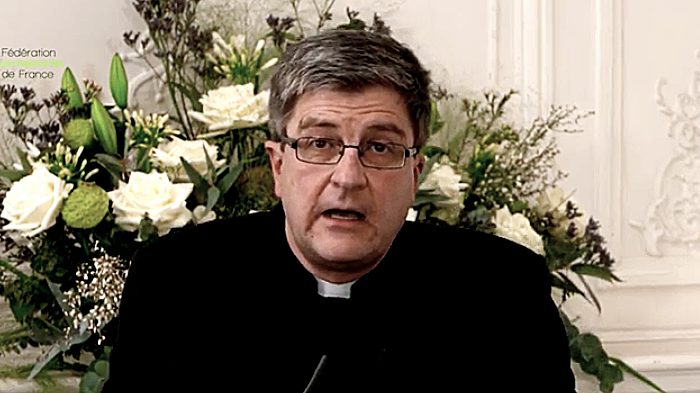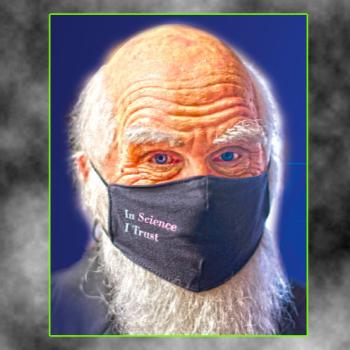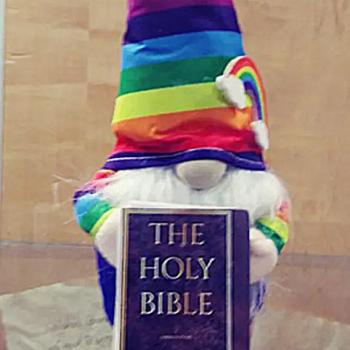
AFTER a report was issued today that revealed the enormity of sexual abuse within the French Catholic Church, Archbishop Eric de Moulins-Beaufort, above, head of France’s Conference of Bishop, said that the scale of abuse was “more than we ever could have imagined,” and asked forgiveness to “those who were victims of such acts.”
The report – the most comprehensive account of sexual abuse in the French Catholic Church to date – was compiled by the Independent Commission on Sexual Abuse in the Church (CIASE) at the request of Church officials, and reveals that Catholic clergy in France sexually abused an estimated 216,000 minors over the past seven decades.
The number of abused minors rises to an estimated 330,000 when including victims of people who were not clergy but had other links to the Church, such as Catholic schools and youth programmes. Between 2,900 and 3,200 abusers were estimated to have worked in the French Catholic Church between 1950 and 2020, out of a total of 115,000 priests and other clerics.
The report said:
The Catholic Church is the place where the prevalence of sexual violence is at its highest, other than in family and friend circles.
The investigation also found that children were also more likely to abused within church settings than in state-run schools or summer camps.

According to an NDTV report, Jean-Marc Sauvé, above, head of the commission that compiled the report, said that the church had shown “deep, total and even cruel indifference for years,” protecting itself rather than the victims of what was systemic abuse.
Most of the victims were boys, he said, many of them aged between 10 and 13.
The church not only did not take the necessary measures to prevent abuse but also failed to report it and sometimes knowingly putting children in touch with predators, he said.

Before Sauvé took the floor, François Devaux, above, who set up victims’ association La Parole Liberee, accused church representatives at the public presentation of the report of “cowardice”. He added:
“You must all pay for these crimes,” Devaux told the clergymen, slowly enunciating each word before repeating the phrase again.
In this hell, there have been atrocious crimes committed for decades … there was a betrayal: betrayal of trust, betrayal of morality, betrayal of children, betrayal of innocence of your own people, betrayal of the gospel, betrayal of the original message, betrayal of everything.
Sauvé said the commission itself had identified around 2,700 victims through a call for testimony, and thousands more had been found in archives.
But a wide-ranging study by research and polling groups estimated that there had been around 216,000 victims, and the number could rise to 330,000 when including abuse by lay members.
There have been around 2,900-3,200 suspected paedophiles in the French church over the last 70 years, he added.
Sauvé said the abuse was systemic and not limited to “a few black sheep that strayed from the flock”, and that abuse of minors within the Church accounts for close to four percent of all sexual violence in France. Most of the violence happened between 1950 and 1968, he said, but it still persists today, adding:
The problem is not behind us, it is still here.
The French findings come a year after Britain said the Catholic Church had received more than 900 complaints involving over 3,000 instances of child sex abuse in England and Wales between 1970 and 2015, and that there had been more than 100 reported allegations a year since 2016.
The report said that over the 70 years examined by the commission:
The Church’s attitude could be summarised as one of concealment, relativisation or even denial, with only a very recent recognition dating from 2015, and even then, unequally accepted by dioceses and religious institutions.
While the Church has taken “important steps” to prevent sexual violence in recent years, the report described them as reactive and insufficient. It also warned that:
Although these acts of violence were in decline up until the early 1990s, they have since stopped decreasing.
The report’s summary said that “reinforcing the presence of secular figures and women in particularly in decision making spheres” of the Church “seems not only useful but necessary,” and suggested “psychological evaluation” for trainee priests.
The report also recommends that the Church puts in place a mechanism to compensate the victims of sexual abuses committed by its clergy and to put in place an “independent process to officially recognise” survivors if the statute of limitations has expired, or if the offender has died.
One of the thousands of victims who testified before the commission was Christian Dubreuil, now aged 65. He said:
Paedophilia is the perfect crime because it is the only one for which the criminal is sure, or almost sure, that the victim will not report them.
A senior aide to French government ministers before his retirement, Dubreuil grew up not far from Lyon. He says he was a shy and studious child in a family without much history of formal education.
Dubreuil’s abuser slipped into the family circle under the guise of furthering a bright boy’s education, he says. Every Thursday, he would pick him up and they would visit historical sites together.
Dubreuil described his abuser’s infiltration of his family as:
The spinning of a spider web that traps you.
Dubreuil remembers being abused in his family’s living room, as his parents worked in their shop below. He said the abuse lasted for nine months, starting when he was 11 and lasting beyond his twelfth birthday.
I will die with the trauma of what happened, even though it was more than half a century ago.
Hat tip: M Dolon Hickmon

 I’d love a cup of coffee
I’d love a cup of coffee













